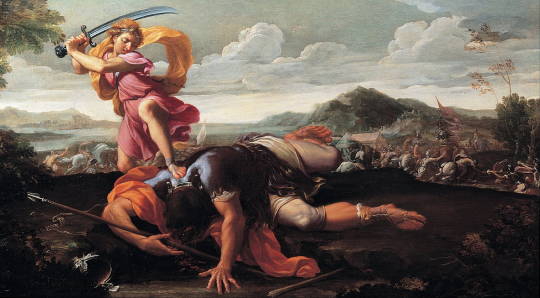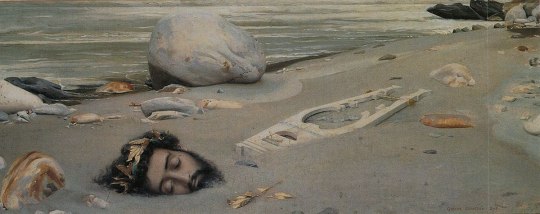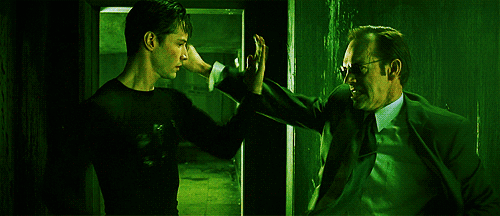#courtois
Text
Courtois, watching Luka and Sergio from afar: Two Bros, chillin in a hot tub. Five feet apart because they think they’re not gay, BUT THEY REALLY ARE-
#source: perchance generator#incorrect football quotes#incorrect soccer quotes#incorrrect quotes#real madrid#rma#madridista#thibaut courtois#courtois#sergio ramos#ramos#luka modric#modrić#modric#modramos#lukamos#luka modrić
40 notes
·
View notes
Photo

David und Goliath von Guillaime Courtois
Öl auf Leinwand, 1650
#Guillaime Courtois#christentum#religion#glaube#kunst#gemälde#meisterwerk#kunstdruck#museum#galerie#kunstwerk#kirche#goliath#david#courtois#oil on canvas#oil painting#sword#fight#enemy#battle#bible#church
42 notes
·
View notes
Note
Is there direct evidence that Courtois destroyed and/or falsified most of Robespierre's documents on purpose? Like, was he ordered to do it? Did he do that on his own?
Out of the approximately 200 Piéces justificatives included in Rapport fait au nom de la Commission chargée de l’examen des papiers trouvées chez Robespierre et ses complices (1795) roughly 75 were written either to or by Robespierre. I’ve been able to confirm the existence of the text in fac-simile for at least 62 of these, mostly by checking other sources like Correspondance de Maximilien et Augustin Robespierre (1926) and seeing if they, when citing a letter originally published by Courtois, could also link to any archived material alongside it. Said correspondence had Courtois’ report as the only source for only two of its letters (1, 2), none of which came off as particulary fabricated at least in my eyes. For the remaining approximately 125 documents not dealing with Robespierre I’ve so far been able to validate 14. This does however not mean I suspect the remaining ones to have been fabricated, only that I lack the sources to check up on them as well. While this is far from a complete study (I’m a bit surprised there doesn’t seem to exist any professional work critically looking over the full report, considering there are suspicions there might have been some foul play) it so far speaks against the theory of Courtois & co having forged and/or falsified a considerable amount of the papers. So far, I’ve also not found any historian voicing their concern that a certain document from the report may be a fabrication.
However, this is not to say Courtois & co didn’t make any alterations to the otherwise authentic material when publishing it in order to tweak the story in the way they wanted it portrayed. One such alteration regards the accusing letter Charlotte Robespierre wrote to her younger brother on July 6 1794, and where Courtois when transcribing the text chose to leave out the header ”Robespierre the younger” along with all references to their shared house on rue Saint-Florentin, to make it look like the letter was really adressed to Maximilien (in her memoirs, Charlotte would insist Courtois had also inserted embellished sentences into the letter, something which on the other hand wasn’t true). Another is regarding a letter from Antoine Buissart to Robespierre dated February 2 1794, which, when comparing Courtois’ version with the fac-simile, shows that the former cut out the first half of the letter when publishing it, for it to look like it only contained complaints. In yet another letter from July 19 1792 one Janegon writes to Robespierre that he is deserving of a civic crown. When publishing this letter, Courtois, according to J.M Thompson, left out both the date and the word ”civic” to make it sound like Robespierre was being offered a royal crown during his time in power. Thompson similarily writes that, when handling spy reports from Guérin, head of a CPS espionnage department, Courtois either replaced the word ”citizens” with ”citizen” or deleted it entirely to make it seem like these reports were adressed not to the entire committee but Robespierre only. These are all examples of alterations I’ve been able to find thus far and I wouldn’t be surprised if there exists even more.
As for if Courtois actually destroyed any of Robespierre’s papers, it should be admitted that, in 1828, there was still enough untouched ones for it to be published a three volume work titled Papiers inédits trouvés chez Robespierre, Saint-Just, Payan, etc, supprimés ou omis par Courtois (ironically, Correspondance de Maximilien and Augustin Robespierre had a harder time providing archived sources for letters originally included in this work than it had with letters originally published in Courtois’ report). To give the word to J.M Thompson again:
It was not until the publication of Papiers inédits trouvés chez Robespierre, Saint-Just, etc., supprimés ou omis par Courtois (Paris, 1828) that it was generally realized how dishonestly Courtois had done his work. A comparison of the two versions shows that, out of the first bundle (liasse) of 10 papers Courtois printed eight, out of the second (56) 17, out of the third (49) 42 — most of these were anonymous letters of flattery or abuse, equally useful for his argument; out of the fourth (62) 11 — here he omits the military mission of Saint-Just and Lebas; out of the fifth (35) 25 — including a number of letters from spies; out of the sixth (34) 24 — spies again; out of the seventh (46) 14; out of the eighth (30) 12; and all of the ninth, viz. 15. Thus, out of a total of 377 documents, Courtois only printed 153; and these were chosen so as to give colour to the rhetorical indictment of Robespierre with which his Rapport began. Not only so: in more than one instance he altered the text of his documents to Robespierre’s disadvantage.
This at least shows us that Courtois, after finishing his report, didn’t just go ahead and throw away all the papers he’d chosen not to include in it. This is further proven by the article Les livres de Robespierre au 10 thermidor (1992) by Fabienne Ratineau, where we learn that on August 1 1795, around 220 books confiscated from Robespierre’s room after thermidor were sent to the national Dépôt littéraire to be documented (the list is published by Ratineau and has been translated into English here). Finally, La saisie des papiers du conventionnel Courtois 1816 (1891) (which I unfortunately haven’t been able to find online but which might shed more light on the activities of the subject of study) shows that Courtois at the time of his death in 1816 still possessed works originally belonging to Robespierre, among which were a bible (that has since gone missing) and 22 letters.
None of this does however disprove the idea that Courtois destroyed documents when first picking through them. If so, arguably only he and the rest of his commission knew about it, and the only way for us to do so would be if any of them came clear later in life. Such confessions I have however not been able to find.
Finally, if Courtois & co were explicately ordered to destroy or falsify papers by the Convention is yet another question I’m afraid I have to give an anticlimactic answer to, since I have yet to find any decree outlining the details of the mission given to their commission, nor the minute for the Convention session when said commission was founded… (I tried looking at Histoire parlamentaire de la révolution française… but so far no luck…)
30 notes
·
View notes
Text
courtois is injured and out all season, cama will take his place
you heard it here first
#but for real though#say what you want about tibo#he has saved us too many times#what now#with a non existing defense#we’re screwed#cama#real madrid#courtois
15 notes
·
View notes
Text

commission
#mine#digital art#football#football fan art#football fanart#thibaut courtois#courtois#TC1#belgium national team#Real Madrid
7 notes
·
View notes
Text
THIS YEARS RMA JERSEY!!!!!
BLOODY HELL 🥵🥵🥵🥵🥵🥵
#real madrid#football#toni kroos#luka modric#jude bellingham#fede valverde#vinicius jr#rodrygo#courtois#nacho
18 notes
·
View notes
Photo

Comrade
同志
22 notes
·
View notes
Text

8 notes
·
View notes
Text

Gustave-Claude-Étienne Courtois; ''Orpheus'', 1875.
#art#painting#oil painting#artist#artwork#painter#man#gustave claude etienne courtios#gustave#claude#etienne#courtois#orpheus#beach#music#musician#greek mythology#greek myth art#mythology#classical mythology#ancient greece#death#sand#sandy beach
5 notes
·
View notes
Text
Luka: Which country has the most birds?
Luka: Portu-geese!
Cristiano: That's a language.
Luka: Portu-gull?
Cristiano: Good recovery.
Marcelo: I think you mean good re-dovery.
Courtois: TURKEY. HOW DID WE MISS TURKEY?
#source: perchance generator#incorrect football quotes#incorrect soccer quotes#incorrrect quotes#real madrid#rma#madridista#luka modric#luka modrić#modric#modrić#cristiano ronaldo#ronaldo#cr7#marcelo vieira#marcelo#thibaut courtois#courtois
33 notes
·
View notes
Text

HALA MADRID! CHAMPIONS OF COPE KING'S IN SPAIN!
Best TEAM of the WORLD 🤍
#real madrid#cope king's#copa del rey#football#sport#sports#soccer#wallpaper#wallpapers#rodrygo#vinicius#benzema#thibaut courtois#courtois#Carvajal#antonio rudiger#eder militao#alaba#Camavinga#toni kroos#luka modric#aurelien tchouameni#hala madrid
19 notes
·
View notes
Text
Alleged meetings between Robespierre and Danton and Desmoulins in the weeks leading up to the arrest of the two latter compilation (and yes, this is the most contrived title I’ve ever had for one of my posts)
Danton tried to imitate the talent of Fabre, but without success, since the efforts, which he made in order to cry, proved to be powerless and ridiculous, first at the tribune of the Jacobins, later at my house. […] In the last visit of which I speak, he talked to me of Desmoulins with contempt: he attributed his deviances to a vice that is private and shameful, but absolutely foreign to the crimes of the conspirators the Revolution. Laignelot was witness. The capacity of Laignelot seemed equivocal to me: he kept stubbornly silent.
Robespierre’s notes on the dantonists, written sometime in March 1794, before the signing of the arrest.
He (Robespierre) had pressed the hand of Camille, his childhood comrade, the same day he signed his arrest warrant.
Fréron in a text written shortly after Thermidor
Billaud-Varennes: Danton was Robespierre's accomplice; for, the day before Robespierre consented to abandon him, they had been together in the countryside, four leagues from Paris, and had returned in the same carriage.
Les crimes des sept membres des anciens comités de salut public et de surete general (1794) by Laurent Lecointre, page 25.
I must record here a fact which passed between Robespierre and Danton, a fortnight before the death of the latter, which will serve more than a long speech, to make the character of both of these two men appreciated and understood.
Danton and Robespierre had been at odds for some time: their division afflicted me; it could only be harmful to the interests of the Republic. I made my uneasiness in this respect known to these patient souls. They shared them and we concerted among ourselves the most effective means to put an end to it; the idea of bringing them together at a common dinner seemed the most favorable. Humbert, head of the office of foreign relation, one of us, moved by his ardent love for liberty and the Republic, undertook to invite them to dinner at his house, and to inform us of the agreed day.
This fixed day, we went to his house, it was at the end of Ventôse, the second Republican year. Robespierre and Danton were already there. I had been instructed to inform them of the reasons which had induced us to bring them together: I showed them how much their misunderstanding astonished their friends of the fatherland; that, it being unable to have any other cause than their misunderstood self-love, jealousy, or wounded pride, I found it strange that they listened rather to their personal resentment, than to the voice of the patrie, to which, like us, they deviated the sacrifice of all their affections. Danton took the floor and told us: “Hate has always been foreign to my heart; I have never felt this painful torment of weak souls; those I don't like, I leave; but I neither hate nor persecute them; I don't know why Robespierre, who was always to be at the head of the Colonne of Patriots, isolates himself almost always; I no longer know the cause of the very marked indifference which he has shown me for so long, which I can only attribute to the intrigues and to the hatred that several members of the Committee of Public Safety have dedicated to me, notably Messieurs. St. Just and Billaud-Varenne, the latter, because he cannot forgive me for having been lucky enough to forget him, when he and his wife were in misfortune; and the other, because I could not conceal my astonishment, that at his age, he professed principles as bloodthirsty as those he manifested. I also believe that the gossiping which surrounds him (Robespierre) contributes not a little to it, in that it never ceases to fill his imagination with a thousand chimeras, by maintaining him only with conspiracies, the guillotine, poison and daggers ready to tear his chest. Yes, continued Danton, addressing Robespierre himself, since circumstances allow me to tell you what I think, in the presence of patriots who, like us, are veterans of the Revolution, I believe that these are the causes of your conduct towards me; I have never complained about all the absurd comments that have been made about me, both in relation to the missions with which I was charged in Belgium, and to the fortune that it is claimed that I have acquired, because I never let my personal life impact my public life, and everyone knows that not only have I not increased my fortune, which is very mediocre, but that I have sacrificed parts of the one I had before the revolution. However, as I have no doubt that you love and serve your country in good faith: the unfortunate believed it!!! I must tell you, I have often moaned about your extreme credulity, and the ease with which, from the gossip of a few imbeciles, or the stupid insinuations of a few idlers, you seem to believe in crime, seeing you almost continually tire and trouble the Convention by the recital of piety conspiracies, which are only the fruit of your imagination, too easy to alarm: or the result of the most atrocious combinations. I'm not talking to you for no reason; I know what are the plans of the two charlatans I told you about, but I also know their cowardice, and they don't have enough courage to attack me: they don't dare!!! Believe me, Robespierre, reveal the intrigue, unite with the patriots, let us all walk in good faith, on the same path; let us forget our resentments to instead see only the patrie, its needs and its dangers; let us imitate our brothers in arms, who fight at the borders; come together, and our enemies without will soon be vanquished and subdued; with regard to those within, they are not big enough, no matter what people say, to be as dangerous as some people would like us to believe, let us keep our eyes open in regards to them, punish the culprits; the leaders, but pardon error, and you will see that the Republic, triumphant and respected outside, will soon be loved from within, by those same ones who, up to now, have blackened their enemies.”
”But with your principles and your morale”, observed Robespierre, who until then had kept the coldest silence, ”would one ever find culprits to punish?”
”Would you be angry, Robespierre,” Danton answered him, with that accent of the soul and of the heart through which we knew him, ”if there were no culprits to punish?”
Reader, whoever you are, put your hand on your heart, and tell me for which of these two men the tears that I see flowing down your cheeks are for!
Robespierre's observation frightened me, as well as those who said: "His category is depicted in its entirety, like that of the unfortunate Danton in his reply."
The reconciliation, however, appeared to be complete; they embraced: Danton put frankness in it; he was touched; we were all moved: well! How could you not? We only think, we only see the patrie, liberty, the republic; Only Robespierre remained cold like marble!....
Legendre, from Paris, Panis, deputies, Deforgnes, then minister of foreign affairs, Jeannet Boursier, administrator of military subsistence, Saintin, secretary general of the same administration, Humbert the elder, Humbert the younger, myself, and several other people, were present for this interesting scene, and a few days later Robespierre himself sent Danton to the scaffold!
Principaux évènemens, pour et contre la Révolution, dont les détails ont été ignorés jusqu’à présent: et prédiction de Danton au Tribunal révolutionnaire, accomplie (1794) by Jean-Lambert Tallien and Jean-Louis-Marie Villain d’Aubigny, page 49-50. Story reported by d’Aubigny. According to Danton (1978) by Norman Hampson, this meeting was confirmed by Legendre in 1795, although I’ve not yet found the place where he does so…
Looking through his bars, he (Danton) said many things that he might not have meant. […] Here are some phrases I retained: […] ”What proves Robespierre is a Nero, is that he never spoke as kindly to Desmoulins as on the day before his arrest.”
Mémoires d’un detenu pour servir à l’histoire de la tyrannie de Robespierre (1795) by Honoré Riouffe, page 88. According to Terror! The French Revolution and its demons (2020) by Marisa Linton and Michel Biard, Riouffe was heavily influenced by his own imagination when writing the book, claiming to have personally witnessed all famous prisoners, and that a study of the prison registries from Paris throws light on passages where Riouffe either invented, lied or exaggerated his account. Unfortunately, they don’t mention if this was the case for Danton or not. I would otherwise be willing to give this anecdote some sort of credability, seeing as the notes of Fréron, that report the same story, weren’t published until 1828, as far as I know. According to Danton (1978) by Norman Hampson, the same story was repeated by Courtois (can’t find the place he’s referring to), as well as by Desmoulins, if we’re to believe ”the well-informed and contemporary” pamplet The trial and punishment of Camille Desmoulins which I unfortunately can’t find any trace whatsoever of online.
Danton shook hands with her (Albertine Marat) and left, promising not to waste time. But when he got to the meeting room, he saw Robespierre chatting familiarly with Desmoulins. The latter came to tell him that Robespierre had shown him so much friendship that the sinister rumors being circulated must have been unfounded. Danton shrugged his shoulders, did not answer, and let the day go by again. In the middle of the night, gendarmes with an unmotivated warrant came to arrest him and took him to the Luxembourg prison. Camille, Philippeaux and Lacroix were also taken there.
Histoire de la Révolution française (1850) by Nicolas Villiaumé, volume 4 page 41. Villiaumé got into contact with Albertine Marat not long before her death in 1841.
Very little time before the cathostraphy where Camille Desmoulins was victim, Joseph Planche, the humanist, the old rhetorics professor at the Bourbon college, who was strongly tied to him, met him in the hooks around Rue de Tournon. Camille was concerned, and told him: ”I’m lost. I went to see Robespierre, and he refused to see me.”
Historie de Robespierre et du coup d’état du 9 thermidor (1865) by Ernest Hamel, page 337. According to J.M Thompson’s Robespierre, Joseph Planche told the story to Quicherat, and he to Carteron, a friend of Hamel.
All I know is that my brother had much love for Camille Desmoulins, with whom he had studied, and that when he learned of his arrest and incarceration in the Luxembourg he went to that prison with the intention of imploring Camille to return to the true revolutionary principles he had abandoned to ally himself with the aristocrats. Camille did not want to see him; and my brother, who would probably have defended him and perhaps saved him, abandoned him to the terrible justice of the Revolutionary Tribunal. Now, Danton and Camille were too closely linked for him to save one and not the other; so therefore, if Camille had not repulsed him at the moment when he was reaching out to him, Camille and Danton would not have perished.
Mémoires de Charlotte Robespierre sur ses deux frères (1835) page 135-136
The fact was that Danton, the most magnificent and grandest revolutionary who ever breathed, was beginning to be pointed out as a moderate, in other words a traitor, because he thought that excesses might prove harmful to the revolution, and had styled exaggerations ultra-revolutionary. Laignelot, one of my most faithful colleagues in the National Convention, came and informed me that Danton, desirous of coming to an understanding with Robespierre, had begged him, Laignelot, to arrange for a conversation between them. One fine morning the two of them called on Robespierre. The dictator was at his toilet, the ancient forms of which took up no little amount of time. Danton, at once beginning the conversation, said, without preamble, "Let us come to a mutual understanding and save liberty, which is being attacked by our most relentless enemies; they are calumniating and deceiving the people, who look upon them as their friends.” Robespierre, who never "thou'd" anybody, replied to Danton, "What do you (vous) mean? Does this apply to me? You may give to my speeches whatever interpretation you see fit. Your mission to Belgium is perhaps not exempt from blame; you were badly seconded, badly surrounded. Lacroix has heaped odium on that mission.” Thereupon Danton, assuming a very lofty tone, said to him, "You are speaking now just as the aristocrats do; they seek to discredit the Convention and the patriots composing it. I will never suffer that any attack be made upon them. You shall not dishonor the Revolution by calumniating its founders." Here Danton's voice became weak; Robespierre, still continuing his toilet, looked at him and made a gesture of contempt. Then Danton, deeply moved, unfolded the dangers threatening liberty, saying: ”Liberty will perish if any attacks are made on its defenders, if the Terror is directed against them in lieu of continuing to strike those who conspire against it, and against whom it was established - against your very self, Robespierre, ere six months have gone by, if we become divided against ourselves." The conversation came to an end with affected civilities. Danton and Laignelot withdrew, and were still speaking in the street of this sinister interview, when Robespierre emerged from the house and passed close by them, pretending not to notice them.
Memoirs of Barras, member of the Directorate (1895) page 176-177. This is clearly the same meeting Robespierre mentions in his notes. However, it is hard to know for sure if this story actually comes from Barras himself, or if is an embellishment created by the people he passed the notes his memoirs were based on in 1827 up until their publication in 1895. And if that is the case, were they added before or after Robespierre’s notes were first published in 1841?
#drama so much drama#i wonder how many of these actually happened…#robespierre#danton#desmoulins#barras#fréron#courtois#french revolution#frev#frev compilation
29 notes
·
View notes
Photo



world’s best goalkeeper appreciation post
133 notes
·
View notes
Text







🤍 Real Madrid USA tour 🤍
#OBSESSED with these#they are so freaking cool#I can't with the three amigos 😭#vini as Flash lol#the vibe is 👌#courtois#vini#carvajal#nacho#lucas vasquez#alaba#KB9#modric#kroos#casemiro#ancelotti#real madrid#us tour
43 notes
·
View notes
Text
Courtois rn lol

Pls mute the #wc 2022 tag if u don’t want to hear me screaming into the void
13 notes
·
View notes
Photo





Hala Madrid!
#real madrid#supercopa#futebol#benzema#karim benzema#luka modric#modric#toni kroos#kroos#casemiro#courtois#vinicius#vinicius jr#rodrygo
21 notes
·
View notes